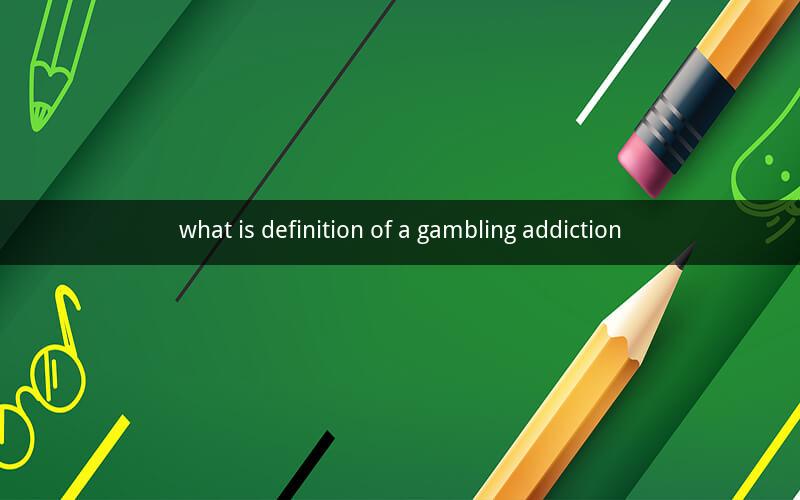
What is Definition of a Gambling Addiction?
Table of Contents
1. Understanding Gambling Addiction
2. Causes of Gambling Addiction
3. Symptoms and Signs of Gambling Addiction
4. Types of Gambling Addictions
5. The Impact of Gambling Addiction on Individuals and Society
6. Treatment and Recovery for Gambling Addiction
1. Understanding Gambling Addiction
Gambling addiction, also known as compulsive gambling or pathological gambling, is a type of addictive disorder characterized by an inability to control or stop gambling despite harmful consequences. This addiction can affect individuals of any age, gender, or socioeconomic status. It is a serious condition that can lead to significant financial, emotional, and social problems.
2. Causes of Gambling Addiction
The causes of gambling addiction are complex and multifaceted. Some common factors that contribute to the development of this addiction include:
- Genetic Factors: There is evidence to suggest that genetics may play a role in the development of gambling addiction.
- Environmental Factors: The availability of gambling opportunities, exposure to gambling through media, and peer pressure can all contribute to the development of gambling addiction.
- Mental Health Issues: Individuals with certain mental health conditions, such as depression, anxiety, and substance abuse disorders, may be at a higher risk of developing gambling addiction.
- Personal Factors: Personal experiences, such as trauma or loss, can also contribute to the development of gambling addiction.
3. Symptoms and Signs of Gambling Addiction
Gambling addiction can manifest in various ways, and the symptoms may vary from person to person. Some common signs of gambling addiction include:
- Loss of Control: Inability to control the urge to gamble, despite repeated attempts to stop.
- Increased Time Spent on Gambling: Spending more and more time gambling, which may interfere with work, family, and social life.
- Financial Problems: Experiencing significant financial difficulties as a result of gambling, including debt and bankruptcy.
- Lying and Cheating: Hiding gambling activities from family and friends, and lying about the extent of the problem.
- Relapse: Returning to gambling after attempting to stop, despite negative consequences.
4. Types of Gambling Addictions
Gambling addiction can take various forms, depending on the types of gambling activities involved. Some common types of gambling addictions include:
- Casino Gambling: Involves playing games such as slot machines, blackjack, poker, and roulette.
- Sports Betting: Betting on the outcome of sports events, such as football, basketball, or horse racing.
- Online Gambling: Engaging in gambling activities over the internet, such as online casinos, sports betting, and poker sites.
- Social Gambling: Participating in social gambling activities, such as playing cards with friends or family.
5. The Impact of Gambling Addiction on Individuals and Society
Gambling addiction can have devastating consequences for both individuals and society. Some of the impacts include:
- Financial: Significant financial loss, debt, and bankruptcy.
- Emotional: Depression, anxiety, and other mental health issues.
- Social: Damage to relationships with family and friends, and loss of social support.
- Professional: Impaired work performance and potential job loss.
- Health: Increased risk of substance abuse, cardiovascular disease, and other health problems.
6. Treatment and Recovery for Gambling Addiction
Treatment for gambling addiction typically involves a combination of therapy, support groups, and self-help strategies. Some common treatment approaches include:
- Cognitive-Behavioral Therapy (CBT): Helps individuals identify and change the negative thoughts and behaviors associated with gambling addiction.
- Contingency Management: Uses rewards to encourage individuals to engage in non-gambling activities.
- Support Groups: Provides a sense of community and support for individuals struggling with gambling addiction.
- 12-Step Programs: Based on the Alcoholics Anonymous model, these programs help individuals develop a plan for recovery.
Frequently Asked Questions
1. What is the difference between gambling and gambling addiction?
- Answer: While gambling is a recreational activity, gambling addiction involves an inability to control gambling behaviors, despite negative consequences.
2. Can anyone develop a gambling addiction?
- Answer: Yes, anyone can develop a gambling addiction, regardless of age, gender, or socioeconomic status.
3. How is gambling addiction treated?
- Answer: Treatment for gambling addiction typically involves a combination of therapy, support groups, and self-help strategies.
4. Can gambling addiction be cured?
- Answer: While there is no cure for gambling addiction, it can be effectively managed with treatment and support.
5. Is there a genetic component to gambling addiction?
- Answer: Yes, there is evidence to suggest that genetics may play a role in the development of gambling addiction.
6. How does gambling addiction affect the individual's relationships?
- Answer: Gambling addiction can damage relationships with family and friends, leading to feelings of guilt, shame, and isolation.
7. Can a person overcome a gambling addiction on their own?
- Answer: While some individuals may be able to overcome a gambling addiction on their own, most people benefit from seeking professional help and support.
8. Are there any medications used to treat gambling addiction?
- Answer: No, there are currently no medications specifically approved for the treatment of gambling addiction.
9. How can someone know if they have a gambling addiction?
- Answer: Individuals can take a self-assessment or seek professional help to determine if they have a gambling addiction.
10. Is online gambling more addictive than traditional gambling?
- Answer: Some studies suggest that online gambling may be more addictive than traditional gambling due to its accessibility and the fast-paced nature of online games.